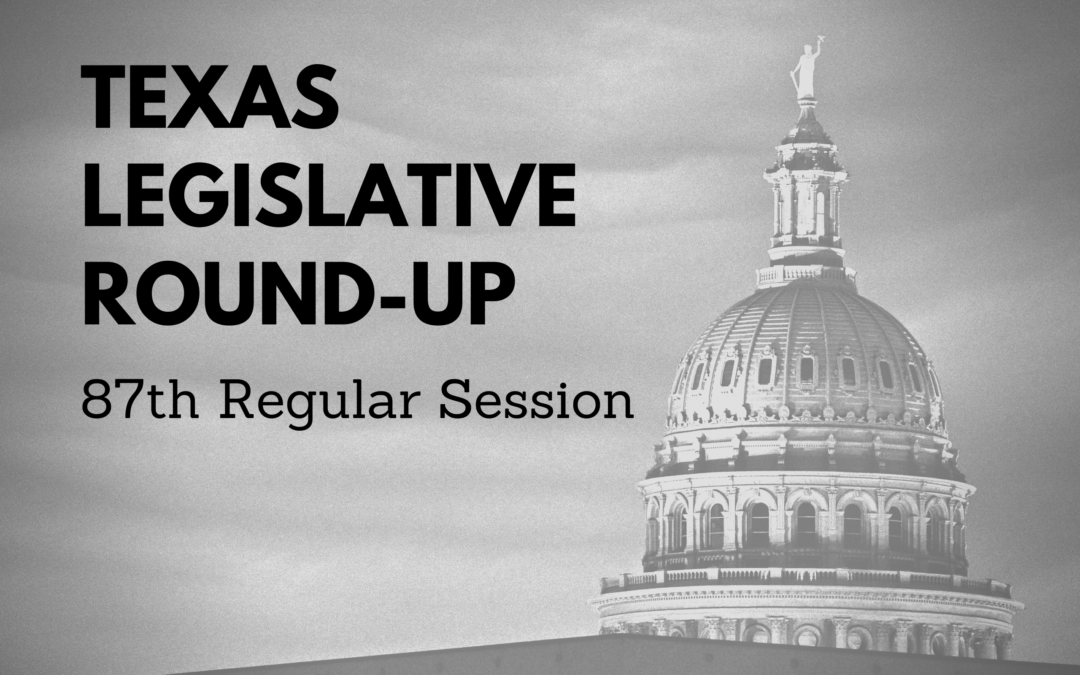Battery storage, transmission siting and potentially expensive regulatory changes — these utility-related issues and others are included in bills now pending before the Texas Legislature. _______________________________________________
From battery storage legislation to potentially expensive regulatory changes — dozens of bills now pending at the Texas Capitol are associated with utility and energy issues. Here’s a description of some of those bills as well as a quick update from the 87th Regular Session, now entering into its second month.
Expect an accelerating pace.
Lawmakers already have filed more than 2,200 bills in Austin and likely will file at least a thousand more before the March 12 bill filing cutoff. Many of these bills will have some effect on gas and electric utility service. House and Senate leadership will soon begin assigning them to committees, and then hearings will follow. The 140-day session adjourns sine die on May 31.
Speaker makes committee assignments.
Dade Phelan, Speaker of the Texas House, has announced committee assignments in that chamber — including chairs for four key energy- and utility-related committees. These are Energy Resources, Environmental Regulation, Natural Resources and State Affairs. The new chairs of those committees are Republicans Craig Goldman, Brooks Landgraf, Tracy King and Chris Paddie, respectively.
Speaker Phelan made his announcement on February 4. To get the full list of new committee chairs and the committee members, go here. Lt. Gov. Dan Patrick last month also announced committee assignments in the Senate. You can read about those assignments here.
Members file energy- and utility-related bills.
Members of the Texas House so far have filed more than 1,600 bills, and members of the Texas Senate have filed more than 600. We’ve included below a quick synopsis of a few bills affecting energy and utility policy, just below. Please note that inclusion on this list implies neither our support or opposition.
HB 1021 would make it easier for electric utilities to charge ratepayers for the cost of financially-based employee bonuses. These bonuses are not for improving reliability or customer service — activities that benefit ratepayers — but rather for financially-based metrics such as increasing a utility’s earnings per share. Regulators consistently have barred utilities from including most of the cost of financially-based employee bonuses into electric rates. HB 1021, if it becomes law, would reverse that regulatory precedent.
SB 415 and House Bill 1672, companion bills, stipulate that a transmission and distribution utility may contract with a power generation company to provide battery storage to ensure reliable electric distribution service. These bills also would block transmission and distribution utilities from owning their own battery storage.
HB 1607 makes various changes to the permitting process for transmission lines. It also stipulates that the state’s grid operator should consult with the Texas Economic Development and Tourism Office to identify transmission projects that would facilitate economic growth.
HB 1042, a refiled bill from the 2019 session, would change the name of the Texas Railroad Commission to the Texas Energy Resources Commission. The legislation would address long-standing public confusion about the regulatory agency, which handles oil and gas matters and has no involvement with railroads.
HB 37 would move authority for permitting gas pipelines from the Texas Railroad Commission to the Public Utility Commission. This legislation applies only to pipelines not under federal jurisdiction, and it does not apply to distribution lines.
You can read descriptions of additional bills here.


